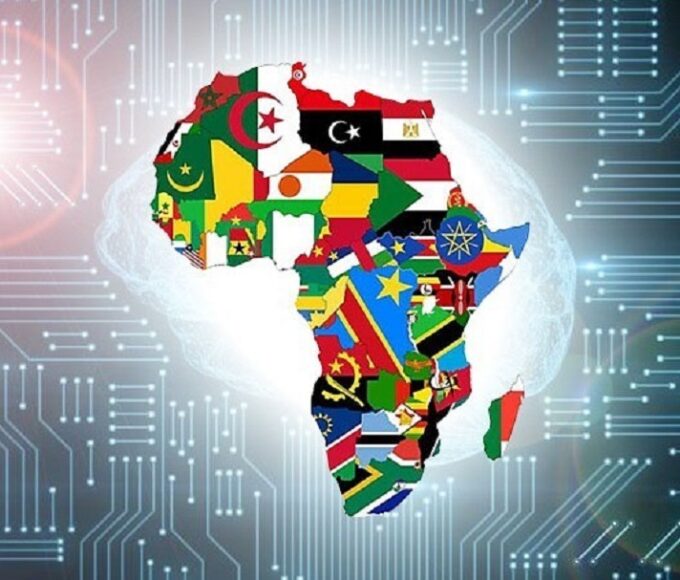AFRICA’S CYBERSECURITY LANDSCAPE: FOCUS ON TANZANIA
Tanzania's cybersecurity landscape is rapidly evolving, driven by the increasing adoption of digital technologies and the growing threat of cybercrime.

Africa’s cybersecurity landscape is rapidly evolving, driven by the increasing adoption of digital technologies, growing internet penetration, and the rising threat of cybercrime. Tanzania, like many other African countries, is facing significant cybersecurity challenges that require urgent attention.
In this article, we’ll explore the current state of Tanzania’s cybersecurity landscape, highlighting the challenges, opportunities, and strategies for improving cybersecurity in the country.
THE CURRENT STATE OF TANZANIA’S CYBERSECURITY LANDSCAPE
Tanzania has made significant progress in developing its digital economy, with the country’s internet penetration rate increasing from 5% in 2010 to over 25% in 2022. However, this growth has also created new cybersecurity challenges.
According to the Tanzania Communications Regulatory Authority (TCRA), the country experienced a significant increase in cybercrime incidents in 2022, with over 1,000 reported cases. The most common types of cybercrime in Tanzania include phishing, online fraud, and ransomware attacks.
CHALLENGES FACING TANZANIA’S CYBERSECURITY LANDSCAPE
Tanzania has seen a rise in cyber threats due to increased digitalization, which has led to more individuals and businesses using technology. Cybercriminals target Tanzanian businesses and users with a variety of cyber threats, including: phishing schemes, ransomware attacks, data breaches, and malware.
These cyber threats can have serious consequences, such as: Financial fraud, Theft of personal information, and Disruption of critical infrastructure.
Some factors that have contributed to the rise of cybercrime in Tanzania include: Increased internet penetration, Widespread mobile phone use, The COVID-19 pandemic, The rise of online apps for business and employment, and Youth unemployment.
To protect against cyber threats, Tanzania has taken some steps, including:
Establishing the Tanzania Computer Emergency Response Team (TCRA), which coordinates national responses to cybersecurity threats
Raising awareness among users about safe online practices
Establishing effective legal frameworks
If you are the victim of a cyber attack in Tanzania, you can open a criminal case or civil suit, or both. You can involve the police, TCRA, or a lawyer.
Tanzania faces several challenges in its efforts to improve cybersecurity. Some of the key challenges include:
- Limited cybersecurity awareness : Many Tanzanians are not aware of the risks associated with cybercrime, making them vulnerable to attacks.
- Inadequate cybersecurity infrastructure : Tanzania’s cybersecurity infrastructure is still in its infancy, with limited capacity to detect and respond to cyber threats.
- Lack of skilled cybersecurity professionals: Tanzania faces a shortage of skilled cybersecurity professionals, making it difficult to effectively respond to cyber threats.
- Limited cooperation and collaboration : There is limited cooperation and collaboration between government agencies, private sector organizations, and civil society groups on cybersecurity issues.
OPPORTUNITIES FOR IMPROVING CYBERSECURITY IN TANZANIA
Tanzania has made significant progress in cybersecurity, ranking first in Eastern, Southern, and Central Africa in the 2024 Global Cybersecurity Index (GCI):
GCI ranking
Tanzania scored 100% across all five GCI pillars, and was placed in the highest category, Tier 1, alongside the United States, the United Kingdom, and South Korea.
The Country is a leading hub for digital information systems and innovation with a potential to maintain its place on the global ranking for a long time.
GOVERNMENT POLICIES
The Tanzanian government is taking a number of actions to improve its cybersecurity, including:
Creating a cyber security strategy
The government’s 2022–2027 Cyber Security Strategy aims to protect essential services and infrastructure from cyber threats. The strategy includes:
Establishing a multi-agency approach: To coordinate actions for detecting, preventing, and responding to cybercrime
Strengthening legal and regulatory frameworks: To create a robust environment for tackling cybersecurity challenges
Developing a skilled workforce: To manage and respond to cybersecurity incidents
Encouraging cooperation: Among stakeholders, including the government, businesses, and individuals
Mandating proactive measures
Public institutions are required to take proactive measures to secure their ICT systems, data, and infrastructure
Re-registering mobile numbers
All mobile numbers are being re-registered with National Identity Cards
Investing in infrastructure
The government is investing in high-level technology and infrastructure to strengthen cybersecurity
Raising awareness
The government and private sector commemorate Cybersecurity Awareness Month every October to raise awareness about digital security
Training judges and officials
The Commonwealth has trained 70 Tanzanian judges and officials to combat cybercrime
Despite the challenges facing Tanzania’s cybersecurity landscape, there are several opportunities for improving cybersecurity in the country. Some of the key opportunities include:
Developing a national cybersecurity strategy : Tanzania needs to develop a comprehensive national cybersecurity strategy that outlines the country’s vision, goals, and objectives for improving cybersecurity.
Investing in cybersecurity infrastructure : Tanzania needs to invest in modern cybersecurity infrastructure, including threat detection and response systems, to improve its capacity to detect and respond to cyber threats.
Building a skilled cybersecurity workforce : Tanzania needs to invest in building a skilled cybersecurity workforce, including training and capacity-building programs for cybersecurity professionals.
Promoting cybersecurity awareness : Tanzania needs to promote cybersecurity awareness among citizens, including awareness campaigns and education programs.
Conclusion
Tanzania’s cybersecurity landscape is rapidly evolving, driven by the increasing adoption of digital technologies and the growing threat of cybercrime. To improve cybersecurity in the country, Tanzania needs to develop a comprehensive national cybersecurity strategy, invest in modern cybersecurity infrastructure, build a skilled cybersecurity workforce, and promote cybersecurity awareness among citizens.
By taking these steps, Tanzania can improve its cybersecurity posture and reduce the risk of cybercrime, ultimately contributing to the country’s economic growth and development and the African Continent.
Recent Posts
Categories
- Air & Aerospace17
- Border Security15
- Civil Security6
- Civil Wars4
- Crisis5
- Cyber Security8
- Defense24
- Diplomacy19
- Entrepreneurship1
- Events5
- Global Security Watch6
- Industry8
- Land & Army9
- Leadership & Training5
- Military Aviation7
- Military History27
- Military Speeches1
- More1
- Naval & Maritime9
- Policies1
- Resources2
- Security12
- Special Forces2
- Systems And Technology9
- Tech6
- Uncategorized6
- UNSC1
- Veterans7
- Women in Defence9
Related Articles
THE PUSH FOR MADE-IN-AFRICA AMMUNITION AND SMALL ARMS
For decades, Africa’s security has rested on foreign supply lines. More than...
ByKing Richard Igimoh, Group Editor ALONovember 4, 2025AFRICA’S BLUE ECONOMY: UNLOCKING A WAVE OF SUSTAINABLE GROWTH
Africa’s blue economy represents one of the continent’s most promising frontiers for...
ByKing Richard Igimoh, Group Editor ALOOctober 3, 2025SYSTEMS & TECHNOLOGY – 3D PRINTING AND AFRICA’S DEFENCE INDUSTRY REVOLUTION
In modern warfare, where speed and adaptability can determine survival, 3D printing...
ByKing Richard Igimoh, Group Editor ALOOctober 1, 2025Sudan’s Mining Revival Begins with Russia, Putting African Resource Control in Focus
Sudan is betting on rocks—and maps—to rebuild its economy. The country has...
Byadmag_adminMay 31, 2025













